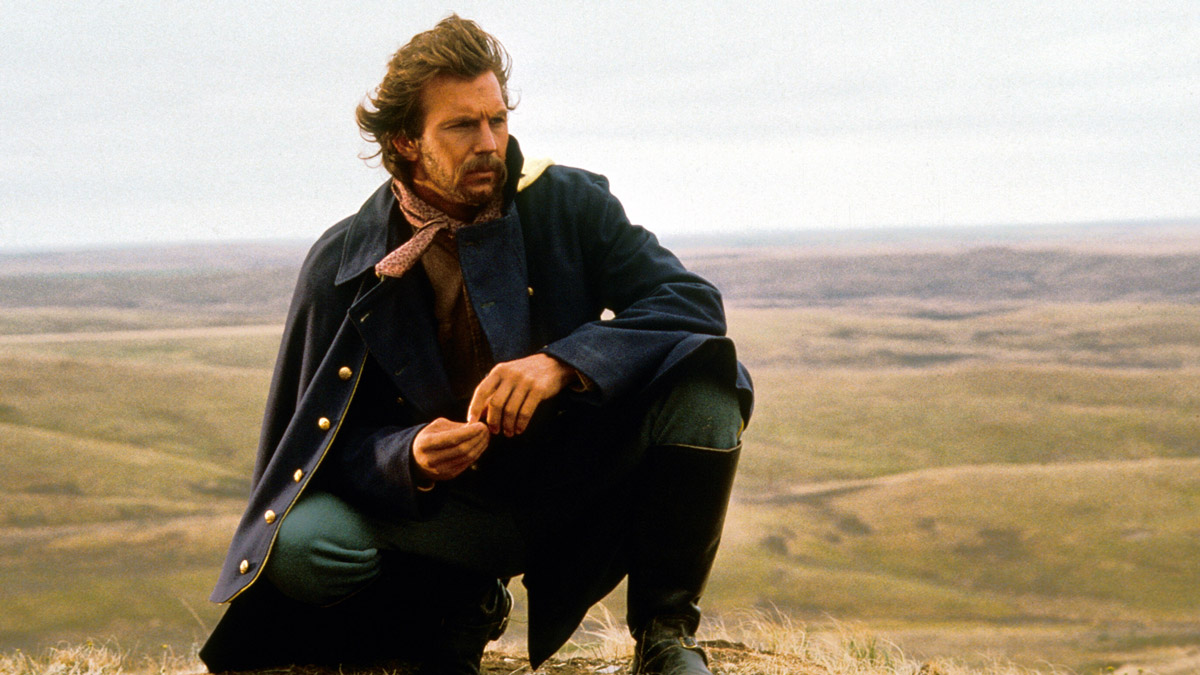
(c) Photofest / Getty Images
' Dances with Wolves': Academy Award-winning western that wasn't what we wanted
2020.11.26
“Dances with Wolves” “Synopsis”
In 1863, John Dunbar, who had become a hero in the Civil War and was given the right to choose his place of service, headed to Fort Sedgewick in Dakota, which had long been an interest to him. Dunbar gradually becomes fascinated by the wilderness, which would normally cause him to suffer from loneliness and mental illness. He begins to live a contented life with his beloved horse and wild wolf. Eventually, Dunbar falls in love with a white woman who was raised by Indians, earns the name ``The Man Who Dances with Wolves,'' and strives to protect them from the white invaders...
Index
- Dominates the 63rd Academy Awards
-
Westerns were already a declining genre.
-
Kevin Costner and <Western>
-
``Dances with Wolves'' had a lot of negative elements.
Dominates the 63rd Academy Awards
``Dances with Wolves'' (1990) was by no means the work that was desired. Of course you might be surprised. This movie definitely signaled the beginning of the 1990s, winning seven categories at the 63rd Academy Awards, including Best Picture, Best Director, Best Adapted Screenplay, Best Cinematography, Best Editing, Best Original Score, and Best Sound Recording. This is because it was a work representative of its time. Kevin Costner, who stars in the film, will also serve as producer and director. The Oscar statuette he received for Best Director also had great meaning.
A revolution was taking place in Hollywood in the 1980s. The reason for this is that works directed by actors have begun to be properly evaluated. For example, Robert Redford won the Academy Award for Best Director for `` Ordinary People '' (1980), Warren Beatty for `` Reds '' (1981), and Richard Attenborough for `` Gandhi '' (1982). As you can see from the year of production, this happened three years in a row.
“Dances with Wolves” trailer
Actors acting as directors is nothing new in the 1980s. In the olden days, there were works directed by popular stars such as Charles Chaplin and Lillian Gish during the silent era, as well as films directed by Orson Welles, Charles Laughton, John Wayne, Jack Lemmon, Clint Eastwood, Burt Reynolds, and Woody. - Examples include Allen, Sylvester Stallone, etc.
However, with the exception of isolated figures like Chaplin, their works often received low reviews upon release, and their ``authorship'' was ignored for a long time, only to be reevaluated in later years. occupies the majority. For example, even Woody Allen's early works were only evaluated as comedy contexts, and it was only after Annie Hall (1977) that his ``authorship'' as a director began to be pointed out. is.
In the history of Hollywood, the fact that a film directed by an actor won the Academy Award for Best Director signaled a change in values in the Hollywood film industry. However, after ``Gandhi,'' the chances of films directed by actors winning Academy Awards have drastically decreased. It was the first time in eight years that ``Dances with Wolves'' won the director's award. This was an impressive feat, given that he was competing with the same year's nominees, Francis Ford Coppola, director of " The Godfather Part III " (1990), and director Martin Scorsese, director of " Goodfellas " (1990). It can also be estimated from
The trend of films directed by actors winning the Academy Award continues with Clint Eastwood's " Unforgiven " (1992) and Mel Gibson's " Braveheart " (1995). . It may seem surprising, but Kevin Costner won the award before Clint Eastwood. What can be pointed out here is that the two award-winning works were based on the Western genre as a motif. At that time, Western movies were already an obsolete genre, and at the same time, they were not expected to attract an audience.

